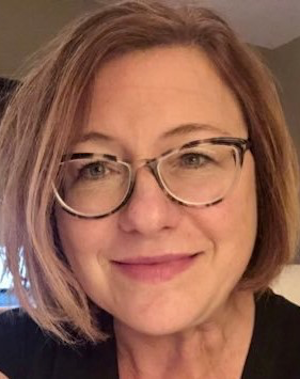By Nathan Kouri
A phone rings in Parkersburg, Iowa. It’s The Des Moines Register, calling to verify the identity of one Jill Burcum, author of a letter to the editor that the paper wants to publish. The author’s parents are taken aback. She’s only in eighth grade.
In 2020, Jill Burcum (ΦBK, University of Washington) became a second-time finalist for the Pulitzer Prize for Editorial Writing. Her nominated work was “Not this mine. Not this location,” published in the Star Tribune, her professional home since 1998. The editorial argues against a proposal for a copper mine in the vicinity of northeastern Minnesota’s Boundary Waters Canoe Area Wilderness, often shortened to the BWCA. The BWCA is a pristine natural haven—the most used wilderness in the country according to the USDA. Burcum takes the stance that any risk to this first-class resource in their backyard is too great a risk to take. The article was the culmination of weeks of exhasutive reporting, including historical research, scientific analysis, on-the-ground interviews, and a visit to the wilderness itself.
As described by the Pulitzer Prize Board, the award for Editorial Writing is based on merits of “clearness of style, moral purpose, sound reasoning, and power to influence public opinion.” Burcum’s editorial is also notable for how it deftly unravels several different aspects of the issue without losing its sense of urgency. It begins with a tug at the heartstrings, describing one family’s tradition of trips to the area, then smoothly shifts gears into practical, reader-friendly explanations of environmental factors at stake and the big-picture political machinations behind the mining proposal. Her sparing use of lyrical language, in conjunction with aerial photographs by Bob King, provides her arguments with an aesthetic appeal: “From the air, on a summer afternoon, the green of the forests and the blue of the lakes glow like gemstones. One sees the connectedness of this water-world—close to 2,000 lakes and more than 1,200 miles of canoe trails, natural highways that brought explorers and fur traders to the continent’s interior.”
But Burcum’s experience of this Edenic aerial perspective wasn’t free of the tense local divisions that have cropped up over the mine. “We hired a local pilot to take us up over the Boundary Waters,” she said. “We were initially going to have someone from the area who opposes this particular mine go with us up in the air. But the pilot wasn’t going to take us if she came.”
Burcum knew that her unequivocal stance would ruffle some feathers in Minnesota; the mining company is an influential special interest in the area. But quietly woven into her editorial are two provocative assertions that local conservation is more than a local issue. First is that the BWCA deserves to be considered a peer to national landmarks like Yellowstone, which is legally protected from mining of the sort proposed in Minnesota. The second is that protection of the area is an international responsibility (the wilderness spills across the border into Canadian parks) and even a global one, since its world-class quality is well established.
The Star Tribune published a follow-up to the editorial on January 30 urging the Biden administration to remember the BWCA in its conservation efforts, specifically by completing a study on the merits of a mining ban in the area that the Trump administration discontinued prematurely. For the past year, though, Burcum has largely written about only one thing: Covid. Drawing on her background in healthcare, she’s written an estimated 150 pieces on the subject. “I wrote my first editorial on Covid on February 6, 2020, raising concerns about the lack of testing . . . . It’s just been nonstop since then,” she said. “Right away our focus editorially was on long-term care centers . . . . One of the things we focused on very early on was [making sure] our governor had a battle plan to protect our seniors in Minnesota.” And the fight is far from over.
As for Phi Beta Kappa, Burcum calls it a family tradition. “My great aunt Mary Margaret Huston, from Iowa, was a member and was very proud of it.” From an early age, Burcum wanted to follow in her aunt’s footsteps. “I knew it was important to her. So for me, it was very meaningful when I was selected at the University of Washington to be part of the tradition . . . . She was really proud too.”
Nathan Kouri earned his bachelor’s degree in English and cinema from the University of Iowa, where he was inducted into Phi Beta Kappa in 2019. The University of Iowa is home to the Alpha of Iowa chapter of Phi Beta Kappa.




